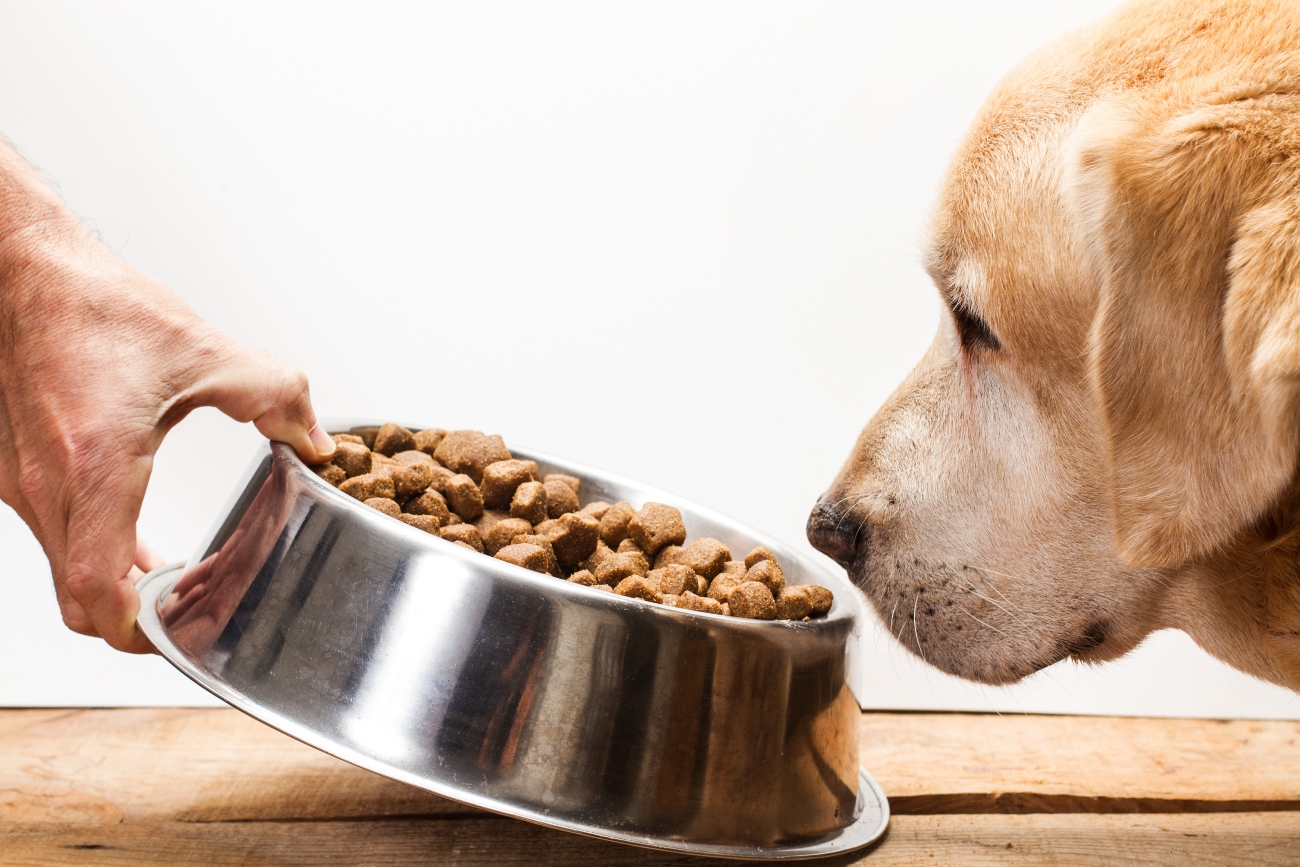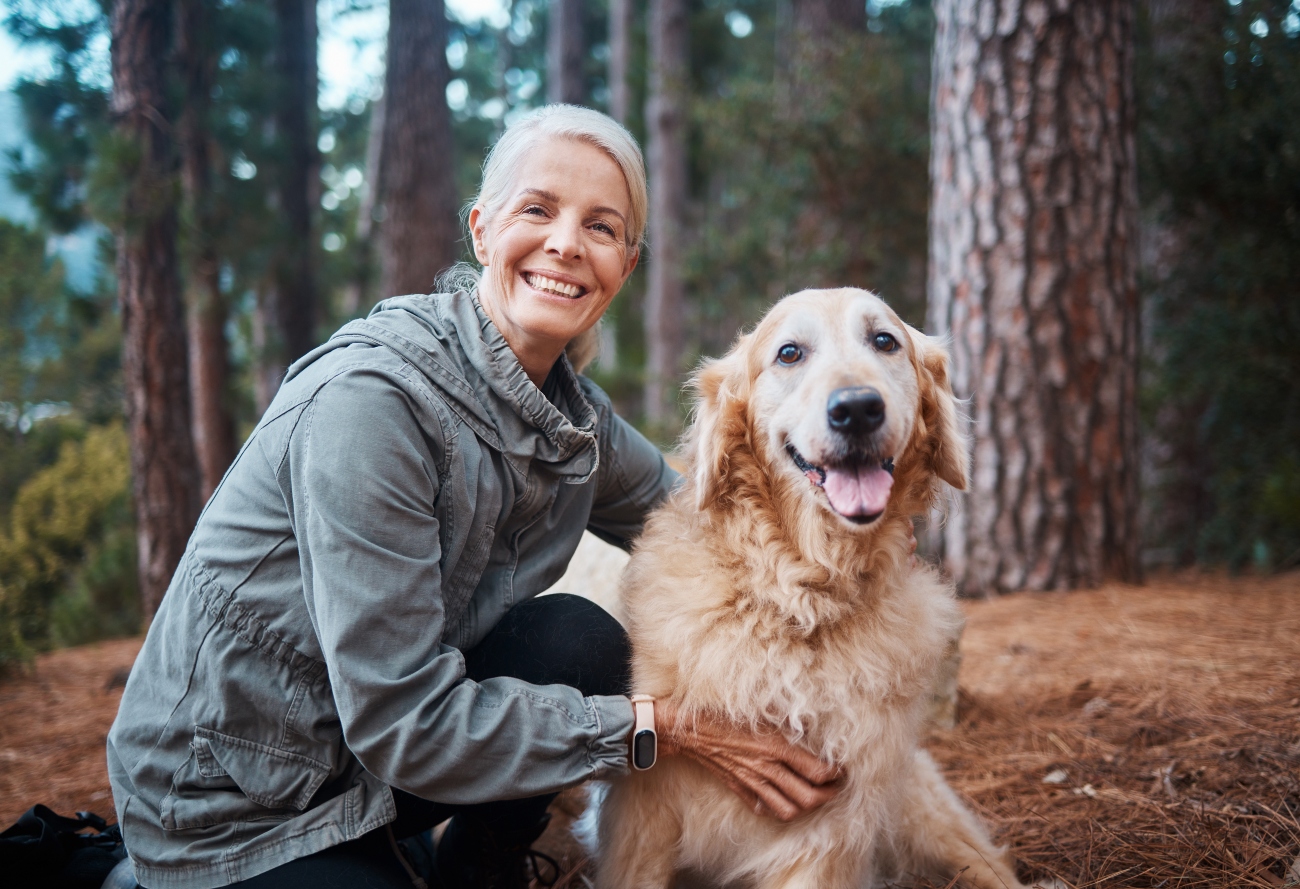
Do senior dogs need senior dog food? Unveiling the truth for your aging canine's nutrition
11th July, 2023
As your faithful companion begins to age, you might start wondering whether their nutritional needs are changing. Is your pet getting everything they need from their current food? Or is it time to transition to a diet specifically formulated for senior dogs? To make the best decision, you need to understand the basics of senior dog nutrition.
Senior dogs, like their human counterparts, can experience a range of age-related changes. These may include:
- Less muscle mass
- Slowed metabolism
- Decreased activity levels
- Increased susceptibility to diseases
Consequently, their nutritional needs can differ from those of younger dogs. Proper nutrition can help:
- Maintain optimal body condition
- Support overall health
- Potentially help manage chronic diseases
However, not all senior dogs are the same. Factors such as breed, size, and health status can greatly influence senior dog diets nutritional requirements. That's why it's important to look beyond the label of 'senior' and consider your dog's individual needs.
Understanding senior dog food
So, what exactly is senior dog food and how does it differ from regular adult dog food? Most senior dog foods are formulated to address common health issues in older dogs. They tend to have lower calorie content to prevent weight gain, more fiber to aid digestion, and increased levels of certain nutrients like omega-3 fatty acids to support joint health.
But remember, not all senior dog foods are created equal. Some brands may simply relabel their adult food as 'senior dog need' without making significant changes to the formulation. Others might include ingredients like glucosamine for joint health, or L-carnitine to support a healthy metabolism. So, it's critical to read the ingredient list and know what you're feeding your dog.
Moreover, it's worth noting that there's no official definition of dogs age as 'senior' in the pet food industry. While some brands may recommend transitioning to senior food as early as age seven, others may suggest waiting until age nine or ten. Again, this underscores the importance of considering your dog's individual needs.
The popular question: Do senior dogs need senior dog food?
Now, let's address the question you're probably here for: do senior dogs need senior dog food? The answer, like many things in life, isn't black and white. It depends on your senior dog's own individual needs and overall health.
For some senior dogs, especially those struggling with weight management or specific health issues, transitioning to a senior diet can be beneficial. However, if your senior dog is healthy, active, and maintaining a healthy weight on their current diet, there may be no immediate need to switch to senior dog food.
It's crucial to remember that age alone doesn't automatically necessitate a change in diet. Each dog ages differently, and what works for one senior dog may not work for another. Consultation with a veterinarian or a pet nutrition expert is always a good idea when considering dietary changes.
Does senior dog food make a difference?
So, does feeding your dog senior food actually make a difference? Again, the answer can vary. For some dogs, a senior diet can help manage weight, improve digestion, and support joint health. However, it's not a magic bullet.
A balanced, high-quality diet is essential at any age. Senior dog food can be part of this, but it isn't the only factor. Regular exercise, routine veterinary care, and plenty of love and attention are equally important for your dog's overall health and wellbeing.
Remember, nutritional needs can change over time. Even if your dog is doing well on their current diet, it's important to monitor their health and consult with your vet regularly. They can guide you in making necessary adjustments to your dog's diet and lifestyle.
The truth: Is senior dog food necessary for older dogs?
So, is senior dog food necessary for older dogs? Not necessarily. While senior dog food can be beneficial for some aging dogs, it's not a one-size-fits-all solution. The best diet for your dog is one that meets their individual nutritional needs, which can change over time and with health status.
For some health conditions for example, a senior dog with arthritis might benefit from a diet high in omega-3 fatty acids to support joint health. A dog battling obesity might need a lower-calorie diet to help manage weight. And a dog with kidney disease might require a diet low in protein and phosphorus.
In contrast, a healthy senior dog with a good appetite, healthy body condition, and no chronic diseases might do just as well on their regular adult diet. The most important thing is to provide a balanced, high-quality diet that supports your dog's overall health and wellbeing.
Benefits of senior dog food for aging canines
While it's not a necessity, senior dog food can offer several benefits for aging canines. These benefits are largely due to the specific formulation of many senior dog foods.
Firstly, senior dog food is typically lower in calories and higher in fiber. This can help prevent weight gain and promote healthy digestion, both of which are common concerns in older dogs.
Secondly, many senior diets include added nutrients like omega-3 fatty acids for joint health and L-carnitine for a healthy metabolism. These can potentially help manage age-related health issues like arthritis and slowed metabolism.
Finally, senior dog food is often easier to chew and digest, making it a good option for dogs with dental issues or sensitive stomachs.
The drawbacks: Are there any disadvantages to feeding senior dogs with senior dog food?

Despite the potential benefits, there can also be some disadvantages to feeding senior dogs with senior dog food. For one, not all senior diets are created equal. Some may simply relabel their adult formula without making significant changes, while others may include unnecessary fillers or low-quality ingredients.
Another potential drawback is that senior diets can sometimes be too low in protein. While it's true that some senior dogs, particularly those with kidney disease, may need a lower protein diet, it's a misconception that all senior dogs need less protein. In fact, some research suggests that older dogs and large breeds may actually need more protein to support lean body mass and overall health.
Lastly, transitioning to a new diet can sometimes be challenging for senior dogs, particularly if they have a sensitive stomach or are picky eaters. It's important to make any dietary changes slowly and monitor your dog for any signs of digestive upset.
Expert opinions: What vet's say about senior dog food
What do the experts say about the best senior dog food? Opinions can vary, but most vets agree that the best diet for your dog depends on their individual needs.
Many vets recommend senior dog food for older dogs with specific health issues, like obesity, arthritis, or digestive problems. However, they also emphasize that a healthy, balanced diet is important at any age, and that age alone doesn't necessarily require a change in diet.
Ultimately, your vet is your best resource when it comes to your dog's nutrition. They can help you assess your dog's overall health, identify any potential nutritional needs, and guide you in making the best dietary choices for your dog.
Making the choice: Is senior dog food better for older dogs?
Is senior dog food better for older dogs? It can be, for some dogs. Senior dog food can provide targeted nutrition for older dogs, helping to manage common age-related health issues. But it's not a one-size-fits-all solution, and it's not the only factor that can influence your dog's health and longevity.
When making the choice, consider your dog's individual needs, overall health, and lifestyle. Consult with your vet, do your research, and make an informed decision. Remember, the best diet for your dog is one that meets their nutritional needs, supports their overall health, and fits within your lifestyle and budget.
Tips for transitioning your dog to senior dog food
If you decide to transition your dog to senior dog food, here are some tips to help make the process smoother. Firstly, make the transition slowly. Start by mixing a small amount of the senior food with your dog's current food, gradually increasing the amount over a week or two.
Monitor your dog carefully during the transition. Watch for any signs of digestive upset, changes in appetite, or changes in body condition. If you notice any problems, consult with your vet.
Lastly, remember that consistency is key. Once you've made the switch, stick with the new diet for at least a few weeks before assessing its effects. It can take time for your dog's body to adjust to a new diet, and for you to see any changes in their health or condition.
Finding the best nutritional plan for your senior dog

In conclusion, do senior dogs need senior dog food? It depends. Senior dog food can provide targeted nutrition for older dogs, but it's not a necessity for all. The best diet for your senior dog is one that meets their individual needs, supports their overall health, and fits within your lifestyle and budget.
Remember, your vet is your best resource when it comes to your dog's nutrition. Regular check-ups, open communication, and informed decision-making are key to finding the best nutritional plan for your senior dog.
Finally, no matter what food you choose, remember that proper nutrition is just one piece of the puzzle when it comes to your dog's health and longevity. Regular exercise, routine vet care, and plenty of love and attention are just as important.